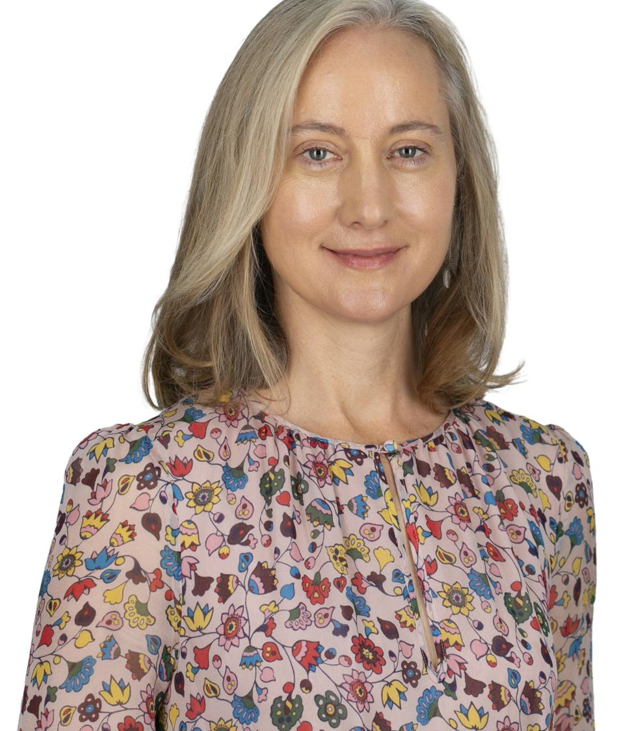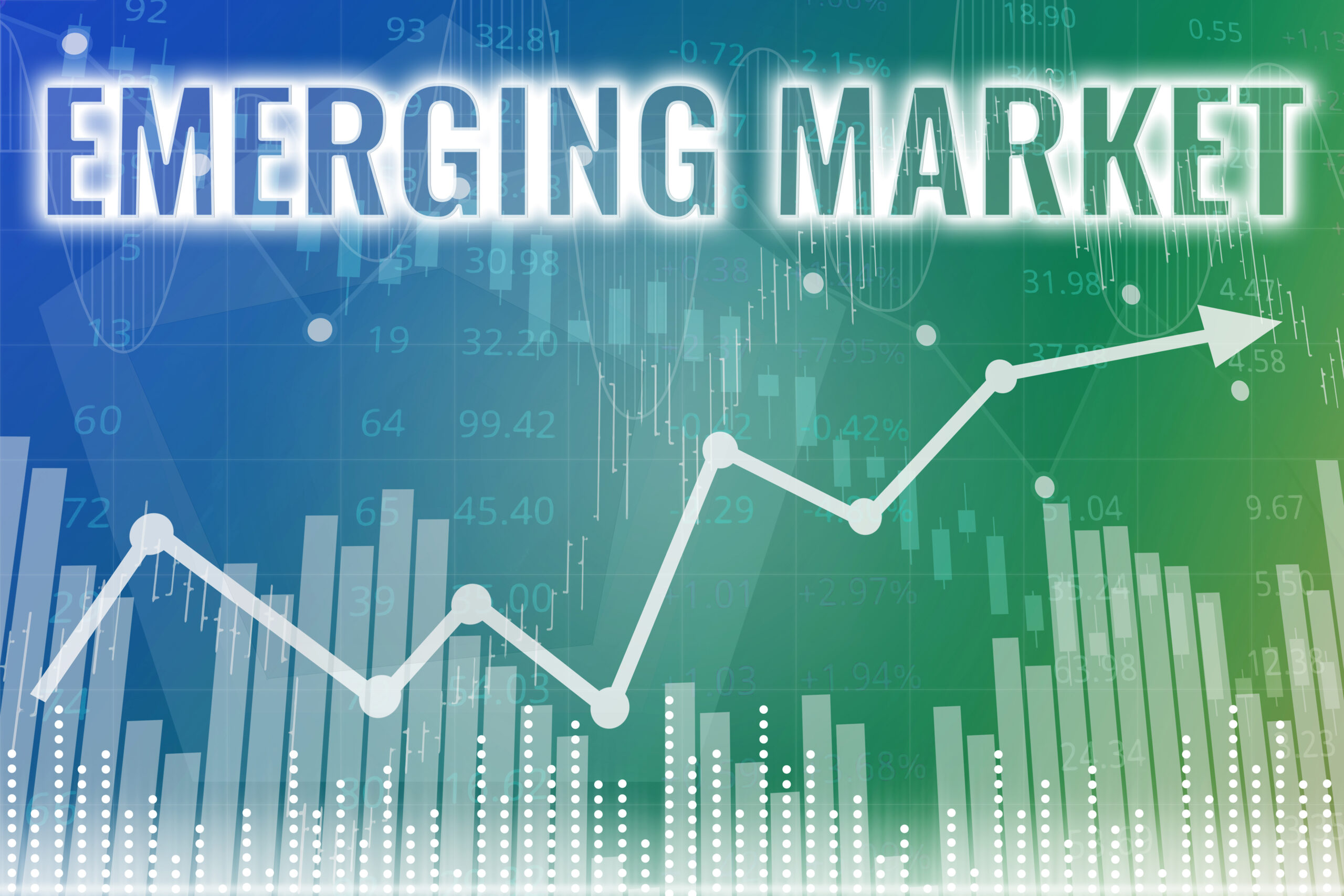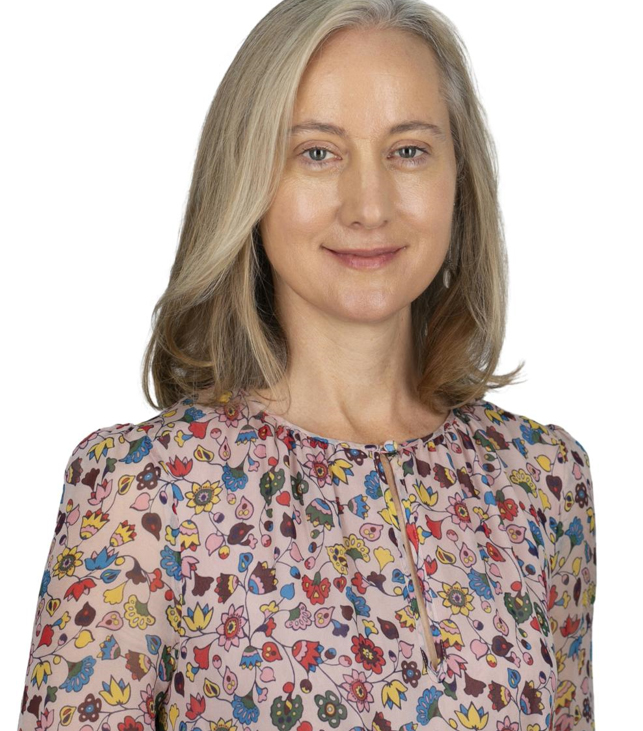I met Sandra (Sandy) Boss soon after she joined BlackRock in 2020. BlackRock has found itself the political target of both the left and the right, each unhappy for different reasons. In short, the left thinks BlackRock isn’t “doing enough” to address systemic issues such as climate change and inequality. The right thinks BlackRock is “doing too much” and is enforcing a liberal political agenda on its portfolio companies. Needless to say, in my own work I’ve read a lot from both sides. In this context, I thought it would be useful to reconnect with Sandy to hear how the firm thinks about these issues. I asked Sandy if she’d be willing to do an interview with me and she kindly agreed.

Sandy Boss, Chief Operating Officer for BlackRock’s Global Client Business
Eccles: Thanks for joining me, Sandy. Let’s start with you. What’s your background and what do you do at BlackRock?
Boss: It’s great to catch up with you, Bob. And to have this chance to talk to you about the work we are doing at BlackRock to help our clients achieve their long-term investing goals.
I started at BlackRock in 2020, overseeing our Investment Stewardship team globally. I led the function for three years and helped launch our Voting Choice program, which is providing options for clients who want to participate more directly in proxy voting, having started with institutional clients like pension funds.
At the beginning of this year, I took on a new role as Chief Operating Officer for our Global Client Business. This is the group responsible for serving all of our clients globally—wealth managers as well as institutions like pensions, insurers, governments, and endowments. It has been an incredible experience working with our client teams across the firm to enable them to meet our clients’ needs.
Prior to BlackRock, I was a statutory policy committee member for the Bank of England and a corporate non-executive director, after spending much of my career as a senior partner with McKinsey.
Eccles: A lot gets said about the world’s largest asset manager, so let’s start with helping people understand more about BlackRock. Who are you?
BlackRock was founded in 1988 on the premise of understanding and managing investment risk, anticipating our clients’ needs, and supporting them in achieving their long-term investment goals.
We serve clients all over the world to help them achieve a better financial future, and each has unique needs which we strive to meet every day.
It’s our job to seek the best returns and outcomes for our clients in line with their investment choices, while managing the risks as effectively as possible.
We have innovative teams to help us do this by focusing on providing customized insights, data and a choice of investment solutions and technology tailored to clients’ needs.
Q. Can you say more about who your clients are and what you do for them? Do you work directly with retail clients?
Great question. Many people know BlackRock as an index manager, and that is the majority of the $9.1 trillion we manage for our clients. But we also manage $2.4 trillion in active mandates and $300 billion in alternatives.
And no, we don’t work directly with retail clients. Retail clients can buy BlackRock funds including iShares through wealth managers like banks, brokers, and independent financial advisors. Individuals and organizations representing more than 120 million people around the world count on BlackRock to manage their investments.
Eccles: Some suggest because of BlackRock’s size that you’re using that to influence corporate behavior. Some say you are pursuing a liberal agenda, while others say you are not doing enough to address important issues like climate change. What is really going on?
Boss: BlackRock’s only agenda is serving our clients’ best long-term financial interests. That is the foundation upon which we built BlackRock into the most trusted asset manager in the world—a total focus on our clients, underpinned by our respect for their diverse preferences and uniqueness.
As a fiduciary asset manager, we need to consider all the material risks and opportunities that can affect long-term value for our clients. This includes big picture issues like the economy, interest rates and geopolitics as well as company-specific issues. We care about how companies are navigating the energy transition because that can have significant implications for their business models and value. We care about how they are treating their employees and working with their customers, communities, and suppliers because they are all essential to the company’s long-term success.
When we make long-term investment decisions on behalf of our clients it is as a fiduciary and focused creating financial value for our clients, within the mandate the client has chosen.
And while there are many people with opinions about how we should manage our clients’ money, the money doesn’t belong to those people. It’s not ours, either. It belongs to our clients, and our responsibility is to them.
Eccles: You said you are seeking the best outcomes for your clients. So how do you do that ?
Our investment approach is informed by three principles: client choice, performance and research.,
Our role is to listen to and deliver choice for our clients. Our clients choose their investment objectives, and they look to BlackRock to meet their needs. We offer them choices across a wide range of index, active, and whole portfolio solutions.
We seek the best risk-adjusted returns within the mandates our clients give us. As a fiduciary, we manage material risks and opportunities that could impact portfolios,
Research informs our investment decisions and product innovation. We research major structural trends—things like shifting demographics, digital disruption, rising geopolitical tension, and the low-carbon transition. These trends are shaping the economy, markets, and asset prices. We assess how these trends could affect long-term value and how they could unfold over time.

Lightbulb brainstorming creative idea abstract icon on business hand (Photo: iStock)
Eccles: Let’s talk more about the last one, research. What’s new with BlackRock’s research?
Boss: Because most of our clients are saving and investing for the long-term, BlackRock researches and publishes—often through the BlackRock Investment Institute—on many of the most significant themes that we believe will have a financial impact on portfolios over time. Much of our recent research is focused on ‘mega forces’—the big, structural changes that affect investing now—and far in the future. As key drivers of the new regime of greater macroeconomic and market volatility, they change the long-term growth and inflation outlook and are poised to create big shifts in profitability across economies and sectors. This creates major opportunities—and risks—for investors.
We’ve also recently published the BlackRock Investment Institute Transition Scenario (BIITS), which provides a proprietary, input-driven forecast of how the transition to a low-carbon economy is likely to unfold across technologies, sectors, and regions.
Eccles: What are clients most interested in? What will have the most impact on their portfolios?
It’s different for every client; there is no single answer. That said, of the mega forces we’ve identified, the most capital intensive one by far is the energy transition.
As the world shifts, it creates opportunities and risks for our clients driven by a massive reallocation of resources as supply chains, production processes, and energy systems are rewired. It has significant implications for nearly every industry sector.
It’s a growing focus around the world and for BlackRock because of economic realities and client demand.
Eccles: What are your clients saying about the energy transition?

Windmills try to blow away the smoke, that a coal burning power plant blows out. It’s a sunny day with a blue sky. Alternative energy (Photo: iStock)
Boss: In June this year, BlackRock worked with a third party to poll global institutional investors to understand how each organization is thinking about transition investing.
- 200 institutional investors were surveyed, representing $8.7 trillion in AUM, from across over 15 countries.
- The objective was to gather insights so that our clients can understand how their peers are thinking about the transition to a low-carbon economy.
56 percent of investors surveyed said they plan to increase their investment in energy transition opportunities over the next three years.
Nearly half of them said it was their #1 investment priority.
Clients also said that research and providing them access to proprietary deals in private markets are two important criteria for them selecting a partner as the low-carbon transition unfolds.
Eccles: So what if you’re not a ‘sustainable investor?’ Does this transition still matter?
Boss: For our clients with specific sustainability objectives, such as net-zero commitments, we offer investment choices that help them meet their objectives. For all of our clients, we still need to consider the risks and opportunities that the energy transition will bring.
Eccles: So how is BlackRock tracking these risks and opportunities for its clients?
Boss: As mentioned, earlier this year, we launched the BlackRock Investment Institute Transition Scenario (BIITS).
This is really the engine behind our analysis and tracking capabilities for how the low-carbon transition is playing out—and may in the future—around the world.
BIITS is a proprietary, input-driven forecast of how the transition will likely unfold across technologies, sectors, and regions.
Eccles: How did you build it?

Magic lamp from the story of Aladdin with Genie appearing in blue smoke concept for wishing, luck and magic (Photo: iStock)
Boss: Far greater minds than mine are behind this. It’s a great collaboration amongst our macro-economists, climate scientists, investors, and our tech platform Aladdin engineers.
The forecast evaluates information across BlackRock’s energy, climate, and macroeconomic models, fundamental investor insights, and bottom-up research. It aims to help portfolio managers analyze the transition’s tipping points (e.g., falling technology costs) and sticking points (e.g., supply chain bottlenecks), track them in real time, and feed the outputs into portfolio and investment guidance.
Eccles: So what has BIITS shown and why does it matter?
Boss: First, it shows that the low-carbon transition is complicated and that it is unfolding at different speeds across sectors and regions of the world.
Second, the complicated nature of the transition means finding investment opportunities requires understanding the shifts and where they’re priced in.
Third is that there are some themes we can observe—areas of opportunity that are emerging—such as climate resilience, emerging markets, and infrastructure.
Lastly, given the capital-intensive nature of the low-carbon transition, we expect the transition to contribute to inflationary pressures over the next decade.
Eccles: Can you please go a little deeper on the key themes you see emerging in the BII Transition Scenario?
Boss: I’d be happy to. The first theme I want to highlight is Infrastructure.
We see opportunities across the ecosystem from scaling renewable power and strengthening grid reliability, to building the “enabling infrastructure” for electric vehicles, to next-generation breakthroughs like carbon capture.
But it’s not just about developing the technologies, it’s about scaling them. This will require investment in generation facilities, energy transmission, and distribution, and capital-intensive investments in proven technology.
We see scale-up investments as the next wave of investment opportunities, investing in the “missing middle” between growth and infrastructure.
Many of these ‘scale up’ opportunities exist with companies that have technologically mature climate solutions that need further funding to scale. They need materials, metals mostly, for their technologies to work.
Materials are a large part of the conversation when it comes to infrastructure. BlackRock expects that demand for transition materials is set to grow faster than historical rates driven by the move to a low carbon global economy. So companies producing transition metals like copper, lithium, nickel, zinc, cobalt, rare earths and aluminum should benefit from stronger-than-expected earnings growth if adoption of lower carbon technologies exceeds expectations as we anticipate it will do. Copper producers with low-cost assets, large resource endowments and growth optionality are best positioned to benefit from the low-carbon transition in our view.
Today, the Materials sector (metals and mining, chemicals, steel, and construction materials) accounts for over 17 percent of global greenhouse gas emissions. But many of these companies are also focused on decarbonizing the supply of materials essential for a transition. We expect these companies to benefit from a re-rating as their sustainability risks decrease and in-turn command a higher multiple.

Financial term Emerging market on blue and green finance background from graphs, charts. 3D render. Financial market concept (Photo: iStock)
Eccles: What about opportunities and challenges in Emerging Markets?
Boss: Emerging markets (EM) are key to the transition. There is a lot of opportunity, but unlocking it is really tough.
Many of our clients are asking us how to invest in emerging markets while navigating risks like local regulation uncertainty and political instability. Successful investors of the next decades will be those that can navigate those dynamics.
We estimate that emerging markets will account for over half of energy demand and carbon emissions by midcentury. This means the shape and speed of EM transitions will in large part define the global transition.
Yet there’s a massive gap between the current rate of transition-related investments in EM and actual investment needs. We think closing this gap would require significant public sector reforms, private innovation, and greater “blending” of private and public capital. We specifically see EM investment opportunities in private market infrastructure and green bond issuance.
Progress on these fronts could accelerate the most likely path of our BlackRock Investment Institute Transition Scenario, yet they remain a key source of uncertainty.
Eccles: And lastly, what about resilience? How is that different from decarbonization?
Physical climate change is here, and it’s driving need for resilience to mitigate the risks and damages we observe today. These damages are costly, and the costs to the economy are growing. Based on our research, climate-related damage could total more than five percent of annual GDP by mid-century.
This is an unfortunate reality and a need and opportunity for investment. Demand for resilience, the ability to understand, manage, and reduce future risks related to physical climate change, is rising. For example, new irrigation systems will be needed as changing temperatures disrupt rainfall patterns.
Increased spending on resilience solutions now represents a secular shift in demand, and businesses that provide these products and services are likely to see their addressable market expand. And it is here that we find some of the most attractive investment opportunities.
Eccles: Sandy, it has been a pleasure speaking with you today. Before we go, what’s on your mind that we didn’t get to talk about? Is there anything you’re reading or watching when you’re ‘off the clock?’

THORSTEIN VEBLEN /n(1857-1929). American economist. Oil on canvas, 1934, by Edwin Burrage Child (Photo: Alamy)
Boss: I must admit that I am glued to the headlines these days, even when I’m ‘off the clock.’ It is hard to escape the tumult of geopolitical events, not to mention the run-up to major elections in the U./ and the UK next year.
That said, I just started re-reading The Theory of The Leisure Class by Thorstein Veblen. After 125 years, I find it still has some relevant insights about the structure and drivers behind our global economy today.
SUBSCRIBE TO OUR NEWSLETTER
Subscribe our newsletter to receive the latest news, articles and exclusive podcasts every week


